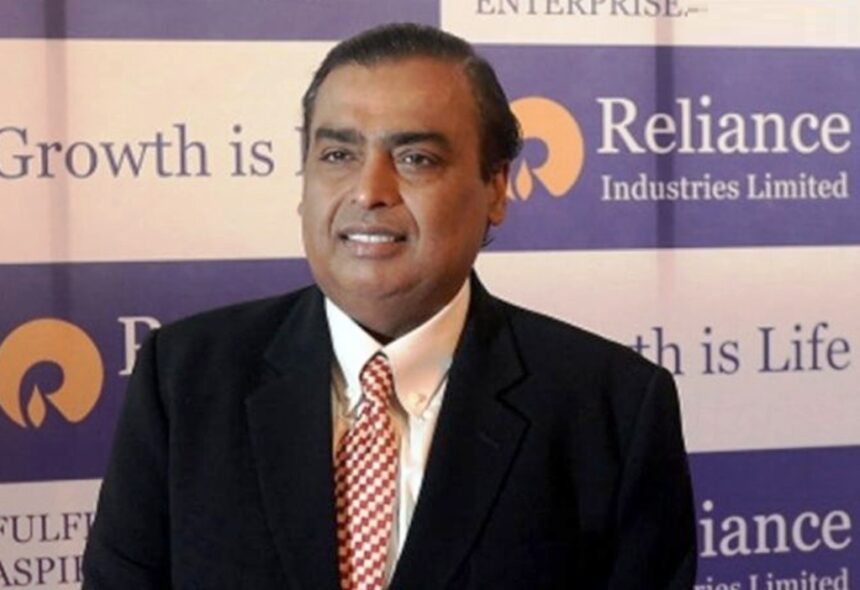MUMBAI – Mukesh Ambani, the billionaire head of Reliance Industries Limited, is under intense scrutiny as his company is accused of benefiting from buying Russian oil, indirectly supporting Russia during the Ukraine conflict.
The issue has come under the global spotlight following sharp criticism from Western countries, especially after U.S. President Donald Trump placed steep tariffs on Indian exports.
Reports suggest Trump hosted a meeting with Russian President Vladimir Putin in Alaska, aiming to discuss the ongoing war. As India and China continue to buy Russian oil at lower prices, the spotlight is now on their part in supporting Russia and the ripple effects for the world’s energy markets and global politics.
Reliance Industries’ Role in Russian Oil Imports
Since Russia’s attack on Ukraine in early 2022, Reliance Industries, known for running the world’s biggest refinery complex in Jamnagar, Gujarat, has become a leading buyer of Russian crude.
Western sanctions targeted at Russian energy were intended to restrict Moscow’s war funding and led to significant discounts on Russian oil. Indian refiners, including Reliance, quickly took advantage of these price cuts.
Kpler’s shipping data shows that by 2025, about half of the crude processed by Reliance came from Russia. Reliance refined this oil and exported products like diesel to Europe and the U.S.
The Centre for Research on Energy and Clean Air (CREA) reported that Reliance made roughly €724 million (about ₹6,850 crore) by selling fuel made from Russian oil to the U.S. from January 2024 to January 2025. This trading pattern is possible because of a gap in Western sanctions.
While these rules ban Russian crude outright, they allow refined fuels from third countries, such as India, to enter global markets. Critics claim this has allowed Reliance to make high profits while Russia benefits indirectly from these sales.
After 2022, as Europe stopped buying Russian oil, Indian refiners stepped in, securing Russian oil at discounts of up to $10 per barrel compared to Middle Eastern sources. Reliance signed an extended supply deal with Rosneft, Russia’s main state-owned oil company, in 2024.
The agreement started at nearly 500,000 barrels per day and later increased to 700,000 barrels, deepening ties with Russia. As the U.S. and EU tighten restrictions on fuels made from Russian crude, this business model faces growing pressure.
India, China, and Russian Oil Revenue
India and China now buy most of Russia’s oil since the Ukraine war began, stepping in as Europe moves away from Russian supplies. In the first half of 2025, Russian oil made up 35% of India’s imports, with private companies like Reliance and Nayara Energy making up half that figure.
China has also increased its purchases, giving Russia a key source of income. Experts estimate fossil fuel exports fund about a third of Russia’s federal budget, making these sales vital for its military spending.
Western leaders accuse India and China of indirectly helping Russia finance its war. Isaac Levi from CREA said this trade “inadvertently funds” Russia’s military. When Indian refiners sell products made from Russian crude to Western countries, they use gaps in sanctions regulations. This means Russian oil, in effect, still finds its way to Europe and the U.S. The result is growing calls for stricter enforcement and fewer loopholes.
Indian officials argue they must look out for their citizens. Foreign Minister S. Jaishankar said buying cheaper Russian oil is a “moral duty” to keep fuel affordable for India’s 1.4 billion people.
With growing energy needs and limits on government fuel subsidies, lower-cost Russian oil helps refiners remain profitable and hold down prices at the pump. This stance, however, clashes with the West’s move to isolate Russia and leaves India in a tough diplomatic position.
Trump’s Tariffs and the Push to End the Ukraine War
President Trump has reacted strongly to India’s continued oil trade with Russia. In August 2025, he doubled tariffs on Indian exports to 50% as punishment for what he called helping “fund Moscow’s war effort.”
Along with possible new sanctions, these moves have forced India’s state-owned oil firms to pause Russian oil deals. Reliance, on the other hand, has continued purchases while starting to check out alternatives like Murban crude from Abu Dhabi before planned EU sanctions take effect on January 21, 2026.
These tariffs are part of Trump’s broader push to force Russia to end the war in Ukraine. In an unexpected twist, sources say Trump held talks with Putin in Alaska in early August 2025 about a possible ceasefire. While full details are not public, Trump is reportedly urging for a negotiated deal to halt the conflict, using trade measures to pressure
Russia financially. Opinions are divided, with some saying direct talks with Putin could appear to reward his methods, while others think this might be a practical way to lower tensions.
Since the tariffs announcement, shares in Reliance have slipped by 1.97%, closing at ₹1,396.45 on the Bombay Stock Exchange. Reliance’s annual report for FY25 flagged geopolitical strains and tariff changes as risks to oil trade and the supply-demand balance. With Reliance importing close to 600,000 barrels a day from Russia, any disruption or need to switch to more expensive sources could mean losses worth billions.
Mukesh Ambani’s Challenge
These allegations of war profiteering have put Mukesh Ambani and Reliance in a tough spot. Reliance’s refinery and petrochemicals division, accounting for 60% of its revenue, relies on the high margins from discounted Russian crude.
As pressure mounts, Reliance must find new suppliers without hurting margins. Recent purchases of Murban crude from Abu Dhabi suggest efforts to branch out, but finding a replacement on the same scale and price as Russian oil won’t be easy.
Ambani has told shareholders he wants to move Reliance toward technology-driven businesses in retail, digital, media, and new energy. But oil refining still sits at the core of the company. Any shakeup in oil supplies could affect both the company’s financial results and India’s fuel security.
The debate over Reliance’s Russian oil business shows just how much global trade, politics, and ethics all connect in oil markets. While India and China stress that their actions come from domestic needs, Western leaders see these trades as undermining their efforts to isolate Russia. New EU rules and Trump’s tariffs are starting to tighten the restrictions, which may push India to review its approach.
Mukesh Ambani and Reliance Industries now find themselves at the heart of an international argument, caught between profit and growing criticism. As Trump seeks peace in Ukraine and India tries to secure energy for its people, the wider world is watching how these forces reshape the oil trade in the months ahead.














